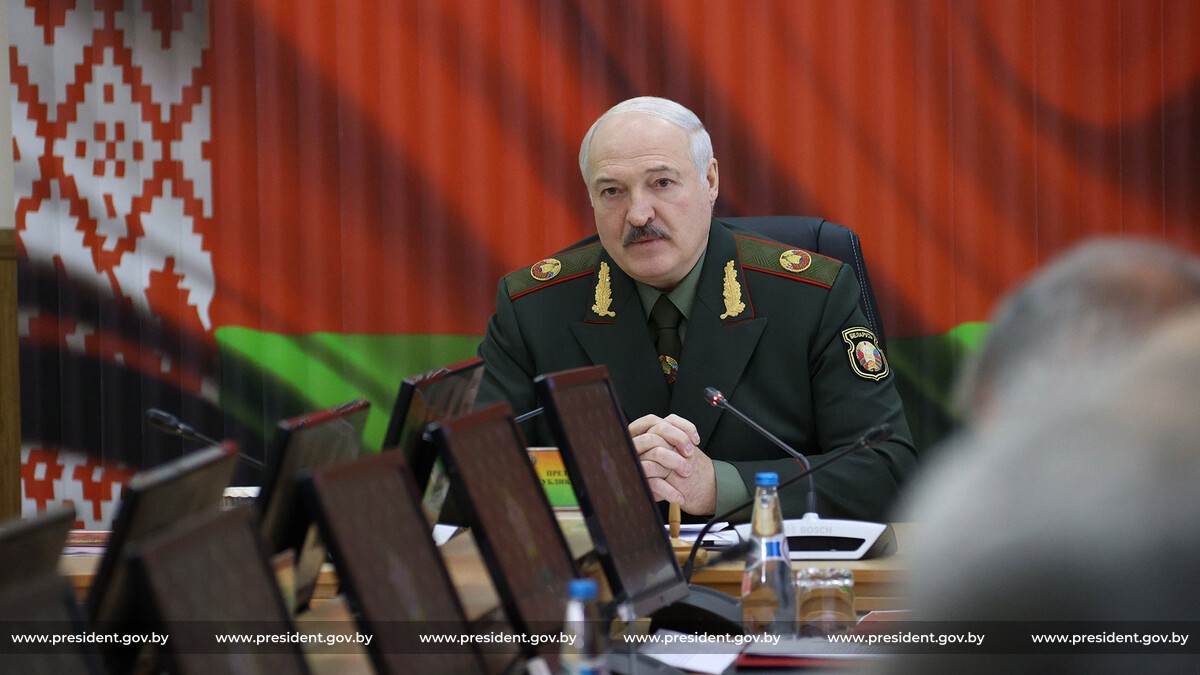The regime’s focus turns to Africa while seeking de-escalation talks with Hungary but escalating tensions with Poland
 The situation has not changed
The situation has not changed

The regime continues to prioritize the development of relations with African countries. However, despite the political efforts, these endeavors haven’t yielded substantial trade and economic benefits, and Belarus hasn’t managed to return to its pre-pandemic level of exports to African nations. Simultaneously, tensions between the regime and Poland are on the rise, with Belarusian democratic exile groups viewing Poland as the primary advocate for tightening sanctions. In contrast, Minsk aims to maintain contacts with Hungary to prevent the adoption of new EU sanctions, exploiting the established fear of direct involvement in the Ukraine conflict.
On September 28, Alexander Lukashenka received credentials from ambassadors representing 11 foreign countries, including Kazakhstan, Hungary, Egypt, Zimbabwe, Equatorial Guinea, Angola, Uganda, Cambodia, the Philippines, Jordan, and Colombia. The presence of a significant group of African ambassadors at the ceremony was seen as a “direct confirmation of our mutual interest.”
Belarus Prime Minister Roman Golovchenko convened a meeting to discuss boosting exports to African markets. During the meeting, he acknowledged that the accumulated political capital and high-level contacts with African leaders have not yet translated into successful trade and economic projects to the desired extent. In 2022, Belarusian exports to African countries amounted to slightly over USD 200 million, a significant drop from the peak of over USD 400 million in 2019.
Meanwhile, the Belarus Ministry of Foreign Affairs has proposed creating roadmaps for cooperation with African countries, with a focus on medicine, education, food security, agricultural equipment supplies, and industrial collaboration on the African continent.
When receiving the credentials of the new Hungarian Ambassador Zita Ilona Bencsik, Lukashenka referred to Hungary as an old and reliable friend with relations built on pragmatism and mutual respect. He expressed readiness to engage in a dialogue about regional de-escalation. Most EU countries have refrained from sending new ambassadors to Belarus, but Hungary is an exception, aiming to maintain communication channels with the regime to prevent Belarus from becoming involved in the Ukraine conflict, as per the official narrative. Minsk evidently intends to leverage its ties with Hungary to prevent further sanctions against the Belarusian regime.
Concurrently, tensions between Minsk and Warsaw have risen as Poland rejected Minsk’s proposals to enhance mutual trust and transparency in regional security matters. The Charge d’Affaires of Poland, Martin Wojciechowski, was summoned to the Belarusian Foreign Ministry, where a strong protest was lodged due to another violation of Belarusian airspace by a Polish helicopter on September 28. The Belarusian Ministry of Defense had previously accused a Polish aircraft of violating Belarusian airspace twice, flying up to one and a half kilometers deep into Belarusian territory. Warsaw refuted Belarus’ claims, labeling them as “repeated provocations and disinformation.”
The ongoing escalation between Belarus and Poland has led Belarusian democratic forces to perceive Warsaw as a proponent for aligning EU sanctions against Russia and the Lukashenka regime. They have proposed measures such as introducing quotas on trade with third countries to prevent sanctions circumvention and applying sectoral sanctions more preferentially. These suggestions aim to close existing loopholes in the EU’s sanctions policy against Russia that the Lukashenka regime has been exploiting.
Subscribe to our newsletter




Situation in Belarus
Constitutional referendum: main consequences


 Video
Video
How to count the political prisoners: are the new criteria needed?


 Video
Video
Paternalism In Decline, Belarusian Euroscepticism, And The Influence Of Russia


 Video
Video












